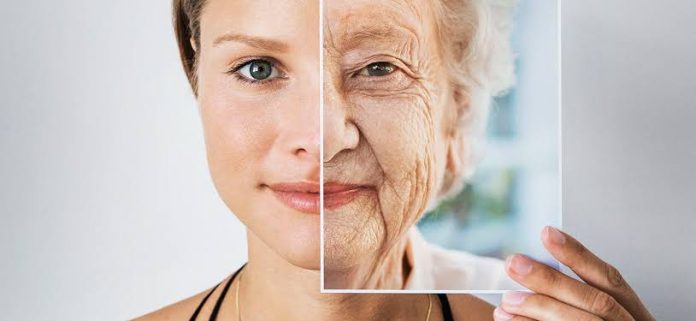Ageing: Nutrition Tips to Slow Down the Skin Ageing Process
When it comes to working against the effects of ageing, it’s vital that we fuel the body with the right nutrition. Here are some important nutrition tips to slow down the ageing skin.
An ongoing supply of nutrients is necessary to support this rapid turnover since older skin cells are constantly lost and replaced.
Making a few small changes to your eating routine can make a big difference in maintaining healthy skin and a youthful body. While everyone has a go-to face cream or treatment, there is no denying that healthy skin begins from the inside. An ongoing supply of nutrients is necessary to support this rapid turnover since older skin cells are constantly lost and replaced. If you eat the right combination of meals, you’ll nourish your skin and help maintain it soft, supple, and spotless. Eat your way to younger-looking skin. Vitamin and mineral-rich foods can help slow down the ageing process.
READ ALSO: 9 Ways To Prevent Food Poisoning
“Skin ageing consists of clinical and biological processes. The first is Intrinsic ageing, which represents chronological age, and the second is Extrinsic ageing, which is the result of environmental stressors and lifestyle factors. We can control some factors of Extrinsic ageing. For example, prioritising sleep, reducing stress and focussing on good nutrition that is antioxidant rich. Prevention is key when it comes to working against the effects of extrinsic ageing, so it’s vital that we fuel the body with the right nutrition to fight the harmful free radicals that age our skin,” says, Nutritionist and Skin Specialist, Lucy Miller, in her recent Instagram post. She further suggested nutrition tips for ageing skin.
 Learn More
Learn MoreCarotenoids/ Vitamin A: Carotenoids are a precursor to vitamin A. It can be found in sweet potatoes, carrots, red pepper, mango and papaya.
Lycopene: Bright red carotenoid pigment found in tomatoes and other red fruit and vegetables. Lycopene may promote wound healing, reduce inflammation and contains vitamin C for collagen production.
Vitamin B3: Helps with hyperpigmentation, sun- damage, ageing, and dry skin. Consuming foods such as garlic, onions, asparagus, barley, oats, bananas, kombucha and kimchi helps in boosting vitamin B3.
Vitamin C: An antioxidant that helps neutralise free radicals and promotes collagen synthesis. Citrus fruits, blackcurrants, guava, parsley, kale, kiwis, yellow peppers, broccoli, and brussels sprouts are rich in vitamin C.
READ ALSO: 7 Foods and Drinks full of Flavonoids – Shown to Reduce Cholesterol
Vitamin D: Vitamin D enhances the skin’s immune system and helps to destroy free radicals. Vitamin D contributes to skin cell growth, repair and boosts metabolism. It can be found in oily fish (sardines, salmon, herring, anchovies, mackerel), red meat and egg yolks.
IMPORTANT: You can now Click “HERE” to receive More updates directly on your WhatsApp!
Tocopherols / Vitamin E: A family of 8 compounds that make up different components of vitamin E and work with vitamin C as a free radical scavenger. Vitamin E can help reduce collagen cross-linking and lipid peroxidation. Foods such as sunflower seeds, vegetable oils, almonds, almonds, avocado and salmon are rich in vitamin E.
Contributed By Akanksha Agnihotri













![The 17 Habits Of Truly Wealthy People That you can easily adopt now [Real powerful stuff]](https://worldfamilydigest.com/wp-content/uploads/2022/02/FA033A84-800B-424D-8DEA-2BB8AD9E91F6-100x70.jpeg)

